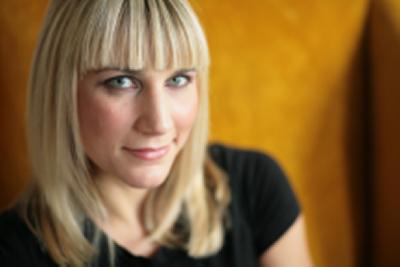PhD Marine Biology, 2010

What was your first job after graduating from SOES? What were your main responsibilities and duties?
After I graduated from SOES I moved directly into a postdoctoral position at the Hubbard Center for Genome Studies, University of New Hampshire. My research focused on high-throughput sequencing as a method for intensive biodiversity assessment of microbial eukaryote communities (e.g. microscopic species including nematodes, fungi, protists, etc.), with a specific focus on benthic marine habitats. My typical duties involved lab work, analyzing data, writing manuscripts, preparing funding proposals, and mentoring high school and undergraduate students. I also took classes in bioinformatics and Perl programming since my research focus was shifting more towards computational biology.
What is your current job? What are your main responsibilities and duties?
I’m now expanding my research skills and training with a second postdoc at the University of California, Davis. My duties here are similar – lots of data analysis, publishing our results, supervising students. The Genome Center here is much bigger compared to New Hampshire, and I interact with a greater diversity of scientists on a daily basis – from computer scientists to theoretical ecologists and microbiologists.
What has been your favourite job since Graduating? Why was it your favourite?
Both postdoc positions have been great – each job offered a unique setting and opportunity for research and training. In terms of weather, I much prefer the sunny California climate to the snowy New Hampshire winters.
What advice would you give to current students about getting a job following graduation from SOES?
Talk to as many prospective employers as you can. Don’t just sent emails, but try to set up meetings with people whose job (or research) you admire; informational interviews can give you inside information and help supplement your judgement when deciding where to work. Your professional network is your best asset in your job search, particularly in science where many jobs are unadvertised. A lab might have funding for a postdoc, but you won't know this unless you directly discuss opportunities with the lab’s Principal Investigator.
What were your first impressions of the University and SOES?
I was astounded at the size of the University – not only the NOC building (which is impressive enough already), but the extent of the Highfield Campus and the diversity of scientific departments.
Why did you choose your course?
I’ve always wanted to pursue a career in academic research, and obtaining a PhD is the first step in that process. I needed to learn the appropriate research skills and obtain the necessary training in preparation for a scientific career.
What were the 3 most memorable things about studying at SOES and the University of Southampton?
1. Participating in a scientific research cruise – it definitely fulfilled a lifelong dream.
2. The scientific community. I interacted with some amazing students and faculty during my time at SOES.
3. The NOC building – it’s an absolute maze.
What advice would you give to prospective students looking to study at SOES?
For prospective postgraduate students, think about what type of research interests you, and what type of questions you might want to address. Talk to faculty members to learn more about their research programs, the projects they’re involved in, and the type of work their current students are pursuing. Personal interactions with SOES scientists gave me invaluable knowledge when I was trying to decide where to study.
What advice would you give to current students studying at SOES?
Let us know what type of work you’re doing. There is a wonderful community of scientists and science communicators who discuss all types of science in online forums. It's a great opportunity for education/outreach, and interacting with online communities is a good way to raise your scientific profile while you disseminate your research.
What achievement are you most proud of since graduating?
At the University of New Hampshire, I worked on a research project investigating the effects of the 2010 Deepwater Horizon oil spill on microbial eukaryote species inhabiting Gulf coast beaches. This project was highlighted in a 2011 Report to President Barack Obama prepared by the US National Commission on the BP Deepwater Horizon Oil Spill and Offshore Drilling.